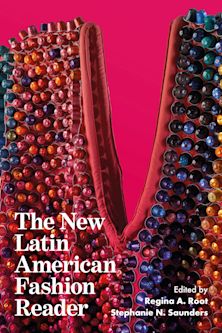- Home
- ACADEMIC
- History
- Latin American History
- People's Power
This product is usually dispatched within 3 days
- Delivery and returns info
-
Free CA delivery on orders $40 or over
You must sign in to add this item to your wishlist. Please sign in or create an account
Description
People's Power is a theoretical, historical and analytical account of representative government that has emerged in Cuba since the 1970's. By combining original research and extensive interviews with citizens and officials, Peter Roman illustrates how the Cuban model was built on theoretical foundations derived from Rousseau, Marx, and Lenin, and the historical precedents of the 1871 Paris Commune, the 1905 and 1917 soviets, and the pre- and post-Stalin years of the Soviet Union. Cuba's contributions to this legacy-the Organs of People's Power-include unique approaches to the nomination and election of municipal assembly delegates and National Assembly deputies, to citizen input and participation, and to the role of the Communist Party. There is no other detailed study of the Cuban parliamentary system. Recorded eyewitness accounts the nominations sessions for municipal assembly delegates and the accountability sessions where citizens voice suggestions and complaints to their delegates, allow Cubans to speak for themselves. Reading this book is imperative for anyone interested in understanding the so often overlooked and misunderstood representative government that exists in Cuba today-as it has for decades.
Table of Contents
Chapter 2 Early Theories of Socialist Government
Chapter 3 Lenin and the Socialist State
Chapter 4 The Organs of People's Power: An Overview
Chapter 5 Nominations and Elections
Chapter 6 Accountability
Chapter 7 The People's Councils
Chapter 8 Conclusion
Part 9 Appendix: Workers' Parliament in Cuba
Product details
| Published | Nov 11 2003 |
|---|---|
| Format | Paperback |
| Edition | 1st |
| Extent | 312 |
| ISBN | 9780742525658 |
| Imprint | Rowman & Littlefield Publishers |
| Dimensions | 229 x 150 mm |
| Series | Critical Currents in Latin American Perspective Series |
| Publisher | Bloomsbury Publishing |
About the contributors
Reviews
-
Praise for the first edition: This is the first study to demarcate an important organ of Cuba's socialist government from its Soviet model. The study results in a reassessment of some entrenched presumptions about Cuba-that its government is totalitarianand non-responsive, and that all its allegedly representative bodies are rubber stamps, totally dominated by the Communist Party....
The Washington Report On The Hemisphere
-
Praise for the first edition: [Poeple's Power] reminds readers of a largely forgotten alternative approach to democracy, a (not fully worked out) approach that was embraced by many socialists for over a century but later was largely forgotten following the rejection of its completely bastardized application in the USSR. In this way this work also constitutes a contribution to the current debate on the nature of democracy under socialism, arguably the central issue in the post USSR debate on the nature of socialism...
Science & Society
-
Praise for the first edition: This is a powerful, well-written, well-argued, and honest book. It makes a really eye-opening classroom text for courses on Cuba or socialism. Peter Roman should be congratulated upon a singular accomplishment.....
Monthly Review
-
Peter Roman's book is a valuable study that helps us better understand the workings, successes, and shortcomings of the Cuban government's effort to promote democracy in that country.
City University of New York, Carlos Sanabria, City University of New York
-
This well-researched and -written book . . . will come as a revelation to many readers. People's Power, based on years of field work and first-hand experience of Cuban elections and the workings of representative bodies, demonstrates that there is a functioning popular democratic political culture as the basis of the Cuban government.
Political Affairs
-
Praise for the first edition:
This is the first study to demarcate an important organ of Cuba's socialist government from its Soviet model. The study results in a reassessment of some entrenched presumptions about Cuba-that its government is totalitarian and non-responsive, and that all its allegedly representative bodies are rubber stamps, totally dominated by the Communist Party.The Washington Report On The Hemisphere


































